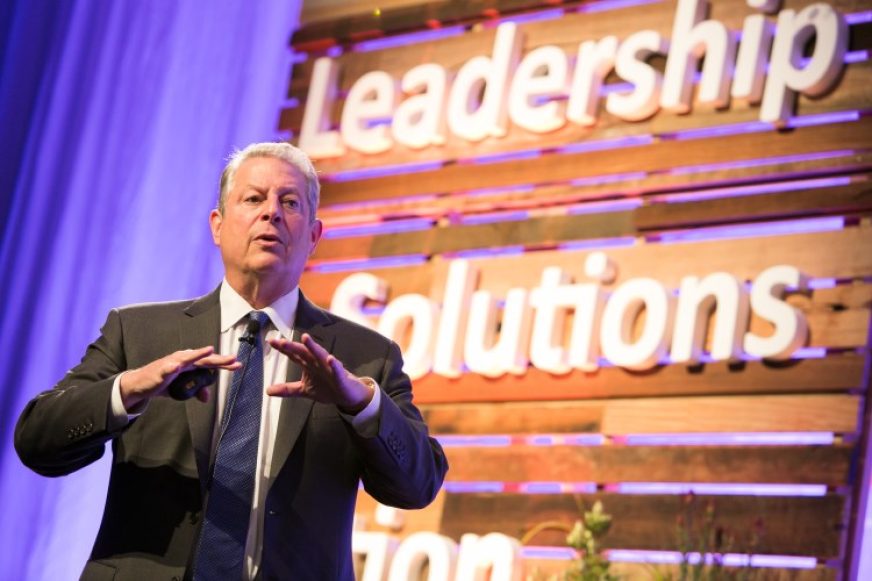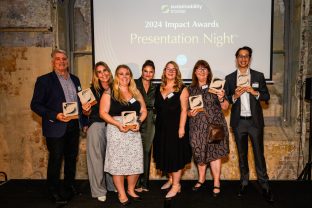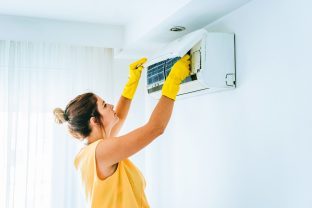You may have noticed that during Al Gore’s recent visit to Australia, he not only met with Clive Palmer, but also appeared at the Melbourne Climate Reality Leadership Training . Our Director, Danielle King was lucky enough to be one of those accepted to attend the training, along with around 525 others who traveled from many countries. It turned out to be an inspiring event which helped to rejuvenate a slight case of ‘green fatigue’ and reminded me why we do what we do.
The line-up of impressive and passionate presenters were too many to name here but included of course Mr Al Gore, Chairman and Founder of the Climate Reality Leadership Corps, Ms Kelly O’Shanassy (CEO Australian Conservation Foundation), and Ms Anthea Harris (CEO Climate Change Authority, Australian Government). Together they took us on a journey of evidence that clearly demonstrated that we are dealing with global warming issues right now. Climate change may be considered a major issue for future generations, but it is already impacting many all over the globe, including Australia, much more than many of us realise.
 This timely ‘update’ re-installed in all of us a sense of urgency that is desperately needed in order to spread the word and deal with what really is a crisis unfolding. As part of the three day session, Mr Al Gore provided a remarkable eight hour on-stage presence where he presented on the current situation and included up to the minute research and examples of climate impacts in Australia. Impacts such as…
This timely ‘update’ re-installed in all of us a sense of urgency that is desperately needed in order to spread the word and deal with what really is a crisis unfolding. As part of the three day session, Mr Al Gore provided a remarkable eight hour on-stage presence where he presented on the current situation and included up to the minute research and examples of climate impacts in Australia. Impacts such as…
- If you live in a bush-fire prone area, global warming is contributing to increased risk of more fires that are more severe as our temperatures rise and rainfall reduces. Something those of us in Victoria and New South Wales are becoming all too familiar with.
- If you live in a cyclone prone area the cyclones are also becoming more frequent, stronger and more devastating. Such as those devastating parts of Queensland over the past few years.
- If you work in the health industry, the additional pressure on local health networks during heat waves, which are happening more often, are putting significant stress on the medical networks. Not to mention the effect on our most vulnerable loved ones, the elderly and very young.
- The financial impact is showing too. Over the past few years (due to the significant ‘natural disasters’ that have occurred) insurance premiums have increased and in some areas people can no longer get insurance. This is affecting farmers, householders in what are now considered ‘high risk’ areas and even the sale-ability of some properties.
- If you’re a farmer the risk to crops is already causing concern. Many have issues with water supply, in some areas the temperatures are getting too extreme and making it untenable to grow the same crops. Some wineries are already moving the grape production to cooler more temperate climates (i.e. Tasmania) in an attempt to maintain the quality of their wines.
- The Climate Council’s Angry Summer report from March 2014 where it has been clearly demonstrated that in just 90 days, over 156 records were broken around Australia. You can see more on this here
- And the list could go on. There is absolutely no doubt – we, here, today, have a problem.
There is a solution, but is the light at the end of the climate reality tunnel a train? No, not yet anyway. That feeling of being totally overwhelmed by the enormity of the problem can be quite depressing, but there is so much we can do, and are doing, to combat and adapt. The opportunities are everywhere. Many of us are making a difference, personally, in our work and in some cases as organisations. The ground swell is growing, the awakening is happening and the solutions are there. So hold onto the hope, share the good news stories and encourage action whenever you can. If you need a reminder, here are just a few of the things that are happening around us, making a difference, right now …
- Investors of all sizes are starting to move from traditional investments (i.e. fossil fuels, old and poorly performing buildings) to cleaner technologies and highly efficient buildings.
- Rooftop solar is now on more than 1 million homes providing energy to over 2.6 million Australians
- The Clean Energy sector is now employing more people than the mining industry. Great for the renewables industry and the country’s economy.
- All new Australian residential homes must be built to a minimum 6 Star Thermal Performance rating which helps to minimise energy use in the homes saving money and pollution.
- Community solar and wind farm projects (i.e. Hepburn Wind Farm now powering all of Daylesford and some of the surrounding area) are popping up all over the country, further reducing the need for ‘dirty’ power.
- Electricity demand on the national grid has actually been decreasing the past few years as a result of energy efficiency strategies and rooftop solar, which has resulted in new coal fired power stations not needing to be built. Saving billions of dollars and huge amounts of additional CO2 into the atmosphere.
- Hybrid and electric vehicles are becoming more affordable (and are great fun to drive) and again reducing the reliance on fossil fuels, especially where charging stations are solar powered.
- Schools are now including sustainability topics as part of the curriculum. Teaching the next generation about our impact on the environment and how to minimise it is a fantastic move forward in education.
- Smart businesses are realising that to remain economically viable, they need to look at the ‘triple bottom line’ which includes environmental and social policies and practices, just making money isn’t cutting it anymore. To survive and be ‘sustainable’, businesses are changing.
- Householders are learning how to grow food again (the veggie patch is making a comeback), many are reducing their waste, energy and water use and changing daily lifestyle practices to minimise reliance on ‘stuff’. And by simply not buying ‘stuff’ we don’t need, we reduce consumerism and save money.
I think you get the point – there is so much positive work going on out there it sometimes gets forgotten. But we should not get complacent and think ‘She’ll be right’ (‘she’ being us, our families, our country, our planet, our home). Because ‘she’ won’t be alright without continued and increased efforts to minimise the effects of climate change and adapt on every front. So let’s ramp it up a bit. How? There are thousands of ways you can make a difference. Our top 10 tips are below. You can minimise your impact and be more active by…
![world-earth-day1[1]](https://www.greenmoves.com.au/wp-content/uploads/2014/08/world-earth-day11-300x300.jpg)
- Simply taking your business away from companies that are not in line with your moral values (and being sure to tell them why you are moving/not buying the product),
- Only buying what you really need (less really can be more),
- Ensure as much as possible of what you do buy is sustainably and ideally locally sourced and can be recycled or upcycled later,
- Supporting clean energy in any way you can (i.e. install solar, choose green power, write to your local MP),
- Reducing your meat intake and increase your fruit and vegetables,
- Spreading the word on living and working in a sustainable manner (make it the norm, not the exception),
- Teaching your kids how to recycle, look after ‘worm’ pets and grow veggies,
- Using your car less and take public transport,
- Attending rallies that support climate solutions, put a price on carbon and that protect our natural environment,
- Being the change you want to see in the world (didn’t someone famous say that)!
One thing about us humans, when we put our minds to it we can achieve almost anything. We have created the current climate situation not out of choice, but from lack of knowledge (initially), and more recently irresponsibility from large fossil fuel based organisations and apathy from our leaders. One thing that was clear from the Climate Reality Training is that it’s up to us, we the people, to shout loud and clear and ‘be the change’. Why? So that our home can remain our home, and when our children ask ‘What did you do to try and prevent or resolve the climate problem?’, we’ll have an answer we’ll be proud of.
So please, make that extra effort, be active and be the change. The cost of doing nothing is massive; but the benefits of doing something are enormous. So move your business, teach your kids and be heard. There’s a lot depending on it.

Danielle is available to give presentations on climate change, its impact and opportunities to any group that is interested within the Melbourne area. Alternatively you can find other Climate Leaders close to your local community here.
Photos: Climate Reality images compliments of Climate Reality | ACF | www.jamesthomasphoto.com









